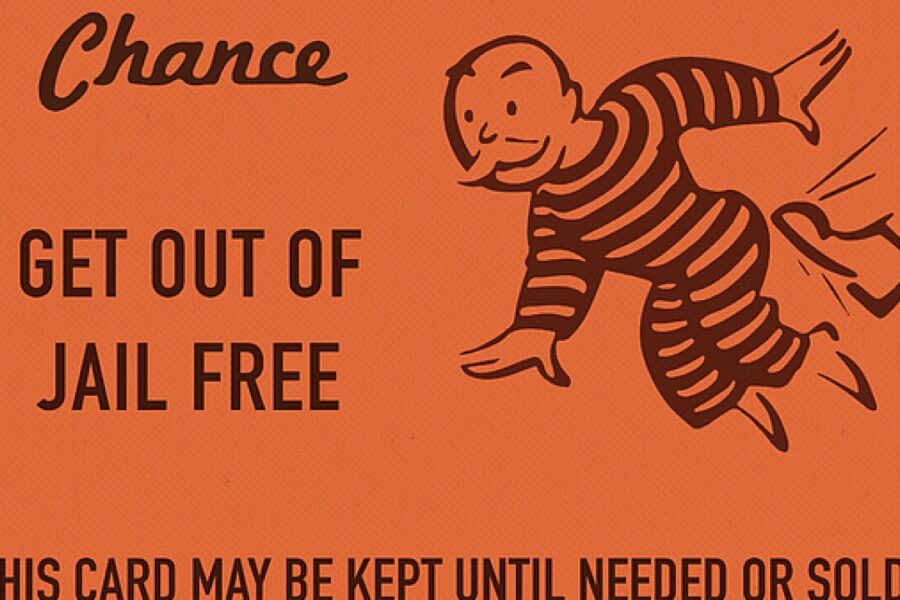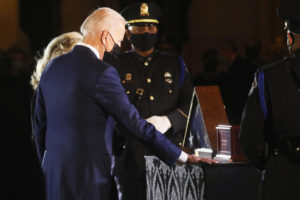Yesterday The American Spectator published my article analyzing how Hunter Biden’s plea deal with the Department of Justice fell apart under questioning by a federal judge.
Here it is.
Broken Plea Deal Exposes Fast Times at the DOJ – The American Spectator | USA News and Politics

Last week, Hunter Biden’s proposed sweetheart plea deal was put on hold in a Wilmington courtroom by a vigilant federal judge who questioned its irregular and unprecedented provisions. In fact, that deal was and remains a scam concocted by Biden’s legal team and Attorney General Merrick Garland’s corrupt RICO enterprise operating under the alias of “the United States Department of Justice.” (READ MORE: Three Cheers for Judge Noreika)
Without getting too far into the weeds of federal criminal procedure, here is a quick outline of what these scamsters tried to blow past the court.
The court was presented with two agreements between the prosecution and defense. The first of these was a plea agreement by which Biden would plead guilty to two misdemeanor charges for failure to pay taxes in 2017 and 2018. In return, the Government would recommend a sentence of probation. The court would nevertheless be free to impose a sentence of confinement of up to one year on each of the misdemeanor charges. (RELATED: Your FBI in War, Peace, and Religion — Shutting Down the Tunnel to Rome)
Attached to the plea agreement was “Exhibit 1” that set forth Biden’s service “on the board of a Ukrainian energy company and a Chinese private equity fund” as well as other business and legal services for other entities all of which generated income “totaling more than $2.3 million in 2017 and $2.1 million in 2018.”
The second agreement was for pre-trial diversion on Biden’s one count information charging him with “knowingly possessing a firearm while then an unlawful user” of controlled substances. Among other things, Biden would be required to refrain from purchasing or possessing a firearm or ammunition, forfeit to the Government the firearm involved in the charge, be subject to supervision by U.S. Probation and Pretrial Services, seek active employment, refrain from using or possessing controlled substances, submit to substance-abuse testing and treatment as directed. (READ MORE: Hunter Biden Pleads Guilty to Tax Fraud, Gun Charges)
If Hunter kept his nose clean (no pun intended) for 24 months, the Government would drop the gun charge.
All of this was a pretty standard diversion agreement save for the fact that, way down in paragraph 15, the prosecution promised that the “United States agrees not to criminally prosecute Biden for any federal crimes encompassed by” the diversion agreement “and the Statement of Facts attached as Exhibit 1 to the Memorandum of Plea Agreement filed this same day.” (Emphasis added)
Got that? With that brief, bland, and seemingly innocuous line, the DOJ was going to give Hunter Biden blanket immunity for all his nefarious business dealings and activities in Ukraine, China, and elsewhere. The inclusion of such a broad-based immunity provision for crimes not relating to the subject of the diversion agreement was totally unprecedented.
It was, in fact, a sleazy, sleight of hand trick worthy of a crooked used car salesman.
Now, while federal judges can accept or reject plea deals, they have no say regarding diversion agreements.
At last week’s court proceeding, U.S. District Judge Maryellen Noreikacomplained that she had not been given a copy of the loaded paragraph 15 until just before the hearing began.
Referring to its blanket immunity provision, Judge Noreika asked Biden “Are you relying on that promise in connection with your agreement” to plead guilty to the misdemeanor tax charges?
Hunter replied, “Yes, your honor.”
“If that provision were not valid or not enforceable,” asked the judge, “would you accept [the plea agreement]?”
“No, your honor,” replied Hunter.
Next the judge noted that, while the tax misdemeanor plea agreement had a line for her signature, the diversion agreement did not. To the lawyers, she said, “You’re saying that I don’t get to accept [the diversion agreement with the blanket immunity provision], I guess I’m supposed to rubber stamp it. I’m concerned that you’re taking provisions out of the agreement, of a plea agreement that would normally be in there.”
That’s when she went after Leo Wise, the prosecutor.
“Do you have any precedent for agreeing not to prosecute crimes that have nothing to do with the case or the charges being diverted?”
Caught with his and the DOJ’s collective pants down, Wise conceded, “I’m not aware of any, your honor.”
And that’s when Judge Noreika struck.
“To the extent that the agreement not to prosecute is promised, do the parties have some understanding what the scope of that agreement is?”
Prosecutor Wise responded, “Yes, your honor.”
“No, tell me, like specifically what does it include,” the judge insisted. “You said that there is an investigation. I don’t know what that is, but you must know that if there are particular charges that could be brought based on the facts that are there.”
“I can tell you what I think we can’t charge. I can’t tell you what the ongoing investigation is,” Wise tap danced. “”So, for instance, I think based on the terms of the agreement, we cannot bring tax evasion charges for the years described in the factual statement to the plea agreement. And I think we cannot bring for the firearms charges based on the firearm identified in the factual statement to the diversion agreement.”
In a clear allusion to Biden’s overseas dealings, Judge Noreika asked, “Could the Government bring a charge under the Foreign Agent Registration Act?”
“Yes,” Wise replied.
This prompted Chris Clark, Biden’s lawyer, to say, “As stated by the Government just now, I don’t agree with what the Government said.”
“I mean, these are contracts,” observed Judge Noreika. “To be enforceable, there has to be a meeting of the minds. So what do we do now?”
“Then there is no deal,” Wise said.
To which defense counsel Clark said, “As far as I’m concerned, the plea agreement is null and void.”
Then, addressing the proposed intertwining of the plea and diversion agreements, the judge said, “I’m concerned that that provision makes me the gatekeeper to criminal charges and puts me in the middle of a decision as to whether to bring a charge. That choice as to whether to bring charges is not — that’s the executive branch, not the judicial branch, so is this even constitutional?”
After exposing and demolishing the scam, Judge Noreika had Biden enter a not guilty plea to the tax charges and adjourned the matter for thirty days.
So what was the object of this collusion between the DOJ and Biden’s legal team? If they had gotten the judge to sign off on the deal, Hunter would have received a well-camouflaged and seemingly court-approved “get out of jail free” card to be used, if necessary, sometime in the future. At the same time, the DOJ could have declined to answer any questions regarding Biden’s legal woes by asserting that it could not comment on a matter under investigation.
What better or more favorable arrangement could there be for the Biden regime?
In this regard, it is important to note that, given Hunter Biden’s prominence and the political importance of his legal difficulties, you can be sure that the thwarted scam was concocted, crafted, and refined at the very highest levels of the Justice Department.
So it is that, when the parties return to court for the next round of dupe-the-judge, it will be interesting to see what new tricks Merrick Garland and his legal geniuses have up their sleeves.
George Parry is a former federal and state prosecutor. He blogs at knwledgeisgood.net.




1 Comment
Leave your reply.